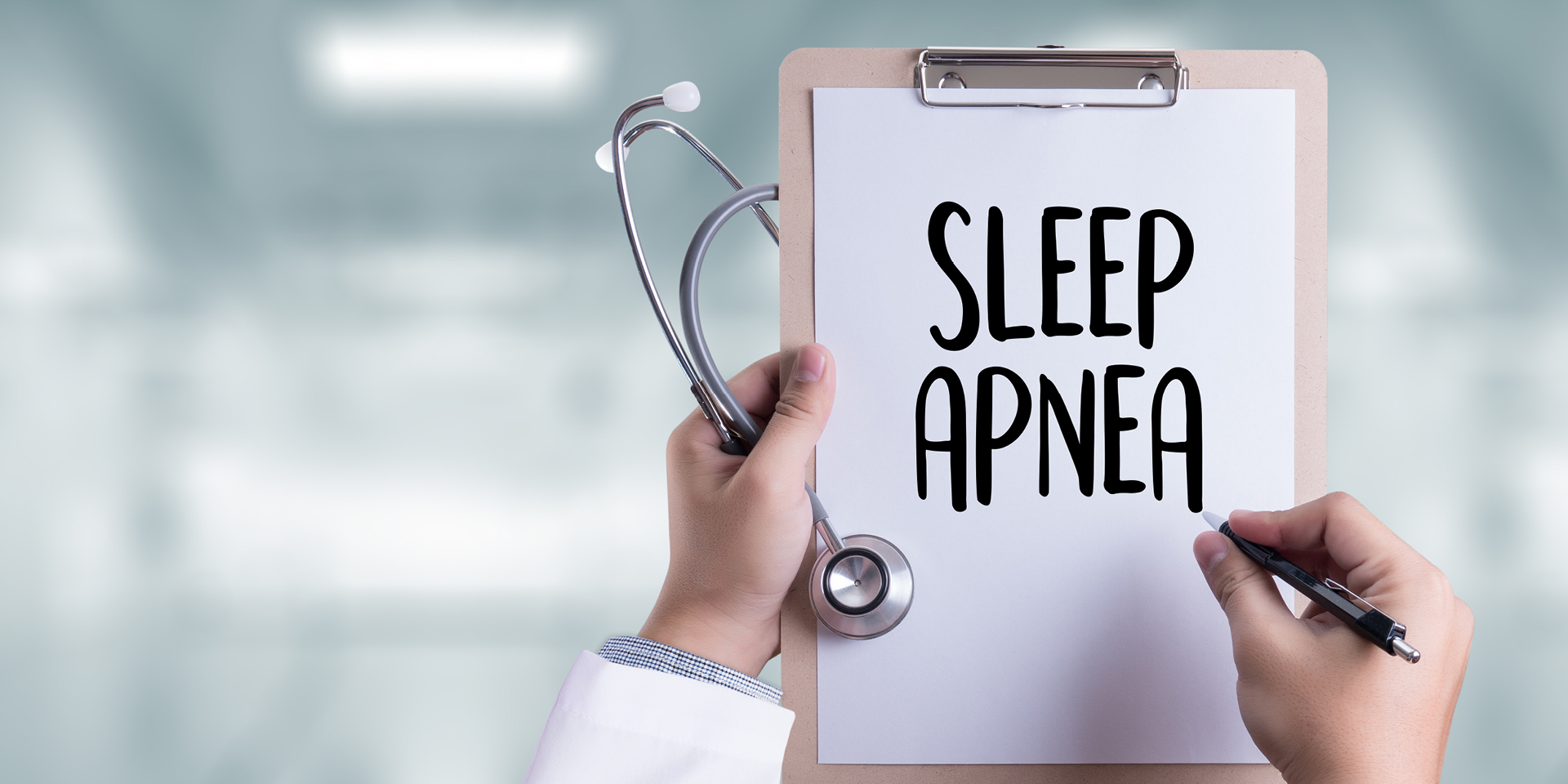Learn about risk factors associated with sleep apnea and treatment options that result in a better, safer night's sleep.
What is sleep apnea?
Sleep apnea is a common sleep disorder in which breathing repeatedly stops and starts during sleep. Breathing pauses can last from about 10 seconds to minutes. They may occur 30 times or more an hour.
It is estimated that more than 18 million adults in the United State have sleep apnea. The most common type of sleep apnea is called obstructive sleep apnea. This causes your airway to collapse or become blocked during sleep. Typically, normal breathing then starts again, sometimes with a loud snort or choking sound.
Sleep apnea usually is a chronic (ongoing) condition that disrupts your sleep. Since the quality of your sleep is poor, you feel tired during the day. Sleep apnea is a leading cause of excessive daytime sleepiness.
Sleep apnea needs long-term management. Untreated sleep apnea can increase the risk of heart problems like high blood pressure, heart attack, or irregular heartbeat; increase the risk of or worsen heart failure; increase the risk of stroke, and raise the risk of having accidents at work or while driving.
What are the symptoms of sleep apnea?
People with sleep apnea often snore loudly. However, not everyone who snores h as sleep apnea. Pauses may occur in the snoring. Choking or gasping may follow the pauses. This pattern repeats throughout the night.
Most people who have obstructive sleep apnea don't know that their breathing starts and stops during the night. Usually a family member or sleep partner hears the snoring and gasping.
Other symptoms of sleep apnea include:
- Not feeling refreshed when you wake up in the morning
- Feeling sleepy or drowsy during the day
- Irritability or depression
- Forgetfulness
- Falling asleep while driving
- Morning headaches that are hard to treat
- Waking up with a dry mouth and sore throat
Who usually gets sleep apnea?
Obstructive sleep apnea is a common condition. About half of the people who have this condition are overweight. People who are obese have four times the risk of sleep apnea than people who are a normal weight. Some people with sleep apnea also have a large neck size (17 inches or more in men and 16 inches or more in women).
Sleep apnea is more common in men than women. Men are two times as likely to have sleep apnea compared to women. The risk for sleep apnea increases as you get older. A family history of sleep apnea also increases risk for the condition.
About half of the people who have sleep apnea also have high blood pressure. Sleep apnea is also linked to smoking, alcohol use, metabolic syndrome, diabetes and risk factors for stroke and heart failure.
How is sleep apnea diagnosed and treated?
Usually people who suspect they have sleep apnea start with their primary physician, who will determine if you need to see a sleep specialist. The most accurate way to diagnose sleep apnea is with sleep studies. These may be done in a sleep lab or at home. There are different kinds of sleep studies that measure how well you sleep and how severe your problem is.
For mild cases of sleep apnea, lifestyle changes may help. These include avoiding alcohol and medications that make you sleepy; losing weight; sleeping on your side instead of your back; using nasal sprays, and quitting smoking. A mouthpiece or oral appliance may also help mild sleep apnea.
The most common treatment for sleep apnea is a continuous positive airway pressure device, also known as a CPAP machine. This device uses a mask to fit over the mouth and/or nose and gently blows air into the throat to help keep the airway open during sleep.
For some people with more severe sleep apnea for whom other treatments have failed, surgery might help.
About Doylestown Health
Doylestown Health is a comprehensive healthcare system of inpatient, outpatient, and wellness education services connected to meet the health needs of the local and regional community. The flagship of Doylestown Health is Doylestown Hospital, a not-for-profit, community teaching hospital with 245 beds and a medical staff of more than 600 providers who deliver the highest quality care in over 50 specialties. Renowned locally, regionally, and nationally, Doylestown Hospital provides superior healthcare and offers advanced surgical procedures, innovative medical treatments, and comprehensive specialty services. Serving Bucks County for over 100 years, Doylestown Hospital is proud to educate and train the next generation of physicians through its family medicine residency program. Ranked as one of the World’s Best Hospitals by Newsweek and 9th in Pennsylvania, Doylestown Hospital is distinguished in both infection prevention and patient experience. Doylestown Hospital is the only hospital in Pennsylvania to achieve 18 consecutive ‘A’ grades for patient safety from Leapfrog Hospital Safety Grade. Learn more at doylestownhealth.org.
